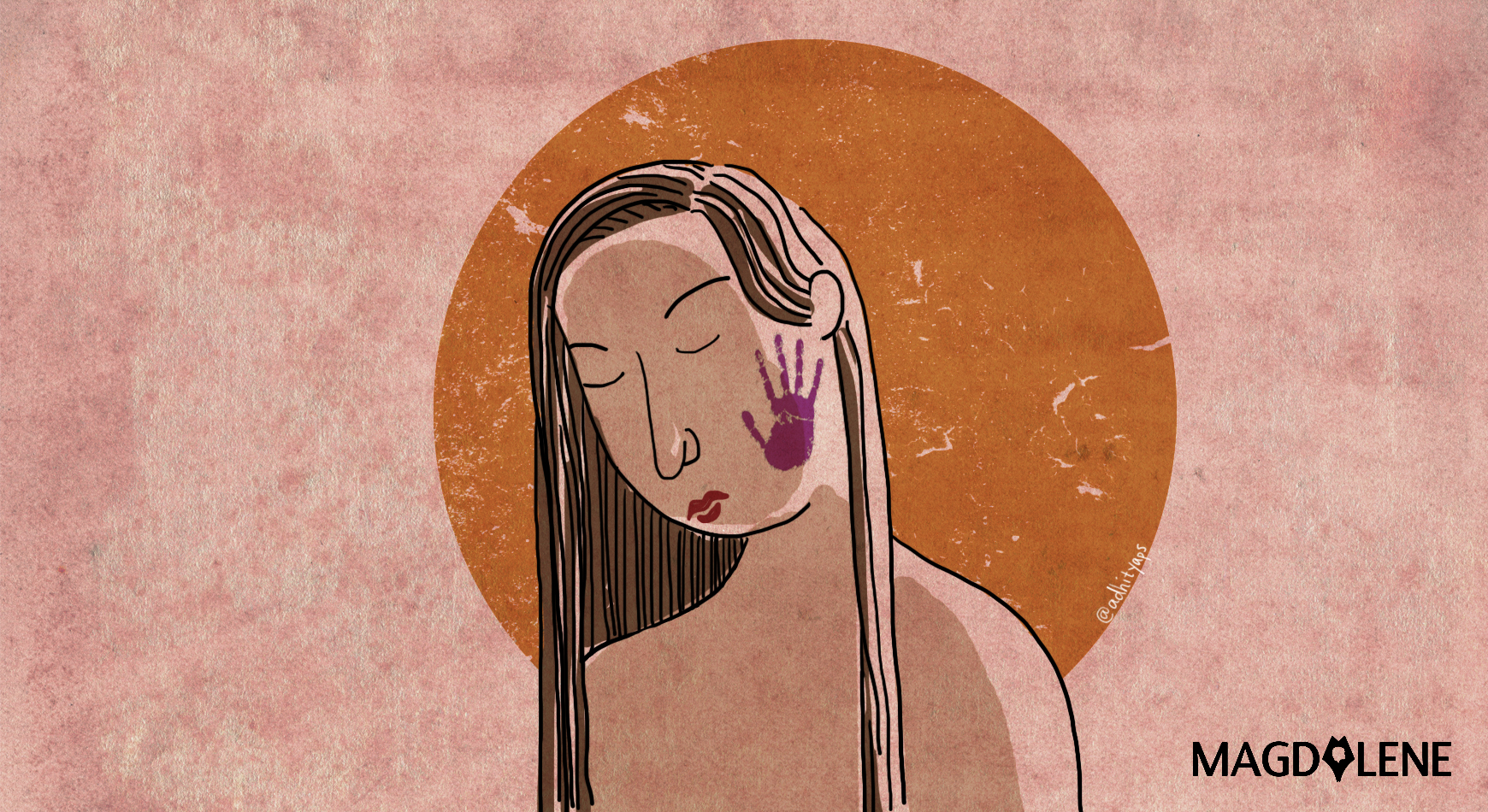The National Commission on Violence against Women (Komnas Perempuan) observes increase in the number of violence against women in private space every year. The COVID-19 pandemic and the social and physical distancing policies have worsened the situation in the past three months.
A recent online survey by Komnas Perempuan about the change in household dynamics during the COVID-19 pandemic found that women have become more vulnerable in the last few months. As much as 80 percent of the female respondents out of the 2285 total respondents said that they experienced violence psychologically and also economically.
Why do many women fall victim to violence? Gender-based violence is an umbrella term all types of violence directed against a person because of their gender.
The patriarchal culture that places male in a higher position in society than female makes women and girls often experience violence whether in private and public space. The violence is not limited only to physical types, but many other forms as well. Below are the different types of gender-based violence that you should know:
-
Physical violence
Physical violence is all forms of direct action that use physical strength or purposefully uses weapons to hurt the victim. Physical violence can lead to death or femicide, a murder conducted because the victim is a female. The latest example is a murder case of an 18-year-old girl in South Sulawesi by her brother, who accused the victim of having sex outside of marriage, thus smearing the family’s name.
-
Psychological violence
Psychological violence is often overlooked because there is no visible evidence that violence has been committed. Psychological violence is any kind of act to attack a person emotionally, including humilitiating, restricting, isolating, or constantly accusing a person of wrongdoing. This act is not always accompanied by physical violence, the perpetrator could do it subtly and manipulatively, even making the victim feel guilty.
The abuser can also taunt or humiliate the victim with the purpose of limiting the latter’s forms of expression such as the way they dress, or whom they can meet. In some cases, the abuser commits emotional abandonment and makes the victim feel worthless and guilty. This results in the victim’s psychological state being affected, and eventually leaves psychological trauma.
-
Economic violence
“You are better off staying at home than working.”
Ever heard of this remark? Well, this is a form of economic violence. Violence in the economic form can be defined as all means to restrict the victim’s financial freedom. In Komnas Perempuan’s Annual Report 2020, the number of cases in private spaces in the form of economic violence reached 363 cases.
Another example of economic violence is exploitation, economic abandonment, or not providing for the partner/spouse. This type of violence occurs very often, and has become one of the leading causes of divorce.
-
Sexual violence
Sexual violence or all forms of sexual acts done without consent occurs a lot in private spaces, mainly by the closest people. Komnas Perempuan divides sexual violence into 15 categories, including sexual harassment, forced pregnancy, forced abortion, sexual slavery, forced contraception or forced sterilization, and forced prostitution.
Last year most common form of sexual violence occurring in private space is rape, including marital rape, according to Komnas Perempuan’s Annual Report. In private space, marital rape is often not considered a crime because it’s a common conception that it is the wife’s duty to attend to her husband’s sexual needs.
-
Violence towards children
Violence in private space doesn’t only occur within romantic or spousal relationships, but also between parents and children. According to from Komnas Perempuan’s 2020 Annual Report, the number of cases of violence against girls increased by 65 percent to 2,341 cases in 2019 from the previous year. The most common form is incest.
One example of violence against children that society still tolerates is child marriage. This happens even though the House of Representative has increased the minimum age for girls in the 1974 Marriage Law No. 1, from 16 years old for girls and 19 years old for boys, to 19 years old for both. Unfortunately, child marriage cases are still common, stripping the children of their rights to education.
Translated by Tabina Amarilla from the original version in Indonesian, this article is supported by Splice Lights On Fund grant from Splice Media.
If you or someone you know need help to get out of domestic or online violence, contact Komnas Perempuan at 021-3903963 or [email protected]); or Lembaga Bantuan Hukum Asosiasi Perempuan Indonesia untuk Keadilan (LBH APIK at 021-87797289, WA: 0813-8882-2669, and [email protected]). Click the complete list of all service institutions/organizations here.








Comments